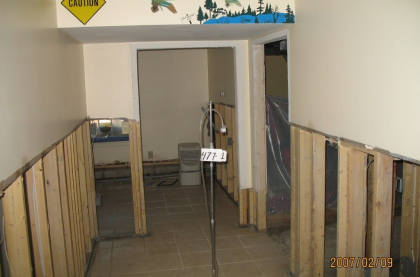WE REPRESENT THE HOMEOWNER. MAKE SURE YOUR INSPECTOR IS INDEPENDENT AND DOES NOT ANSWER TO A REMEDIATION CONTRACTOR. Mold and moisture issues are prevalent on Cape Cod due to its proximity to the ocean and seasonal homes, making thorough investigations essential. At Nauset Environmental, we specialize in independent mold investigations for both residential and commercial properties, providing objective expertise to identify and address potential mold conditions.
Our experienced team utilizes advanced techniques, including moisture meters, infrared cameras, and air screening, ensuring comprehensive assessments tailored to your specific needs. Trust Nauset Environmental to deliver clear and actionable results, empowering you to maintain a healthy indoor environment.
We’ve completed hundreds of mold and moisture investigations over our 20+ years in business.

Mold, naturally occurring in both indoor and outdoor environments, thrives on organic matter like leaves, grass, and wood. In indoor spaces, mold finds ample food sources in cellulose-rich materials such as paper and drywall. However, mold spores require moisture to activate their digestive enzymes and proliferate. Various forms of water sources, including condensation, drips, leaks from pipes or roofing, and warm, moist air infiltration, can trigger mold growth, posing potential health risks and structural damage if left unaddressed.
Employing moisture meters to detect damp areas near windows, doors, or staining, potentially indicating elevated moisture levels conducive to mold growth. Findings may prompt further investigation into wall cavities.
Thoroughly inspecting surfaces for staining, indicative of past or ongoing leaks or moisture infiltration, providing vital clues for mold investigation.
Utilizing infrared cameras to identify cooler areas that may signify damp regions supporting mold growth, offering a comprehensive view for assessment.
Conducting air screening with spore traps to assess potential exposure and identify general spore types, using paired samples to evaluate settled spore levels in different conditions, such as "quiet" and "air disturbed" environments.